- List your property - it's free
- Sign up or Log in
-
English- en
-
VND - ₫
- Buy
- Vietnam Property For Sale
- Vietnam Real Estate
- See Newest Listings
- Why Buy with FazWaz.vn
- Rent
- Sell
- Projects
- Project Directory
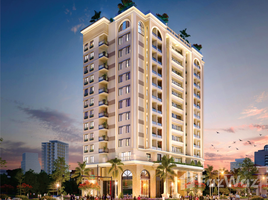




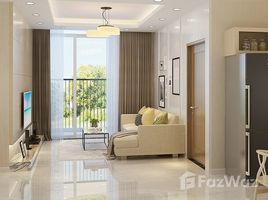





















 Don't miss out!
Get notified when new properties for sale are listed in Vietnam
Don't miss out!
Get notified when new properties for sale are listed in Vietnam





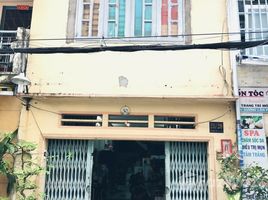




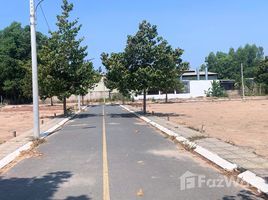




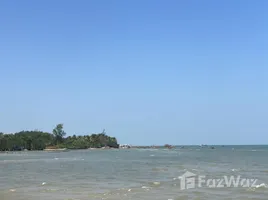




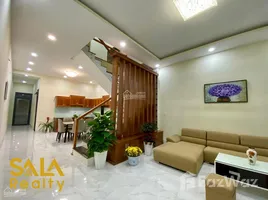




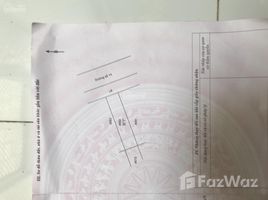













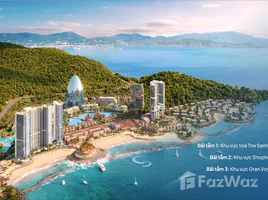
















































































Learn more about the Vietnam property market through trends and average prices.
Vietnam, officially known as the Socialist Republic of Vietnam, is a country located in the easternmost part of the Indochina Peninsula. It is famous for its diverse culture, astonishing architecture, and ancient history. The country is also known for its gastronomic scene, including the delicious Pho and strong-flavored coffee. Although Vietnam is relatively small in size, it boasts staggering natural landscapes. From the majestic limestone islands in Halong Bay to the remarkable cave system in Phong Nha-Ke Bang National Park, the country is full of natural beauty that attracts more and more international tourists.
With its high GDP growth rate, Vietnam is one of the fastest-growing countries in the world. Due to its booming economy, the country has recently been seen as a popular investment hotspot by foreign buyers, especially for its luxury real estate. Another reason why Vietnam attracts foreign investors is that the country has a relatively low property price compared to other neighboring countries. As a result of the fast-growing foreign investments, there has been a surge of high-end property developments in the country. Aside from foreign investors, demand from Vietnamese locals is also continuously rising and the prices are also rising strongly.
Vietnam is the 15th most populous country on the planet with more than 94 million inhabitants. The biggest populated city in the country in Ho Chi Minh City, which is also a popular tourist destination. Formerly known as Saigon, Ho Chi Minh City is a city full of energy. It is Vietnam’s financial center with a prominent history dating back hundreds of years. The city is well-known for its fantastic restaurants, interesting culture, lustrous skyscrapers, and classic French architecture. Most tourists who travel to the city usually visit War Remnants Museum, Notre Dame Cathedral, Giac Lam Pagoda, and Jade Emperor Pagoda.
The capital of Vietnam, Hanoi, is also popular among international visitors. With its various historical attractions, this city is considered as the ancient capital of Vietnam, which is perfect for visitors who want to indulge in Vietnamese culture. It is home to the beautiful Old Quarter as well as a number of picturesque pagodas. Another popular tourist destination in Vietnam is Hoi An, which is listed as a UNESCO World Heritage town.
Many visitors also travel to Da Nang. Da Nang is a thriving city that has experienced some rapid changes within the past decade. The most famous attractions in this city are the Marble Mountains as well as the beaches, such as My Khe Beach and Non-Nuoc Beach.
There are numerous property types in Vietnam. The most popular type for foreign investors is a condominium. High-rise luxury condos and apartments can be found in big cities, such as Ho Chi Minh, Da Nang, and Hanoi. These condos are usually equipped with top-notch amenities, such as gyms, swimming pools, large parking areas, and other “Western” amenities. Mid-rise and low-rise condos are also available in some parts of the country. Apartments and condos come in various sizes. Studio and 1 bedroom condos are popular among singles and couples. While two to five-bedroom condos are frequented by families.
Another popular type of property in Vietnam is villas. Villas are usually larger, with private gardens and spacious living space. Some luxury villas even have their swimming pools. Townhouses can be found in different areas of the country. Townhouses are smaller than villas and usually have smaller outdoor spaces. Both villas and townhouses can be located in gated communities.
The cost of living in Vietnam can be different for everybody, depending on the lifestyle, type of accommodation, and location. The cost of living in major cities is normally more expensive than in smaller towns. However, the living standard in Vietnam is relatively inexpensive. Foreigners can live a decent life for very little. For those who are on a budget, Vietnamese street food is delicious and affordable. Getting around in Vietnam is very inexpensive, especially with cyclos (bicycle rickshaws) and xe om (motorbike taxis).
The official currency is the Vietnamese dong (VND). 1 USD converts to 23,214 VND. The smallest bill is 10,000 VND. Foreign visitors can use credit cards at hotels and restaurants. Note that tipping is not common, but will be greatly appreciated. Visitors can also haggle in markets and street food vendors as it is the norm in Vietnam.
The north, central, and south Vietnam experienced different types of weather. Southern Vietnam enjoys a tropical climate, which means the temperatures are generally warm but with more rainfalls. Northern Vietnam starting from Hanoi has cooler temperatures, especially in the Winter. In general, April to October is the monsoon season (the rainy season) in Vietnam. Bear in mind that December is the typhoon season.
The culture of the country is heavily influenced by Chinese culture. Vietnamese are very friendly and welcome foreign visitors. They value family and clan over individualism and will go out of their way to help others. Most people in Vietnam follow Vietnamese Folk Religion or have no religious beliefs. But other faiths, including Buddhism, Taoism, Confucianism, and Christianity are also widely practiced.
Vietnam is renowned for its ultra-modern and rapidly evolving medical industry and is considered one of the best in the region. Bacsiday provides details on all the major hospitals and clinics across the country.
To stay in Vietnam long-term, foreigners need a long-term visa valid for 6 or 12 months with multiple entries. Long-term visa is only available for business purposes. 6 months multiple entry visas cost 95 USD and 12 months multiple entry visa costs 135 USD.
1. Rapidly Growing Economy – Vietnam’s GPD is growing at an average rate of 8.4% annually, which is ahead of other Southeast Asian countries such as Cambodia and the Philippines.
2. Growing Population – The population in Vietnam is increasing continuously. Besides, more and more expats and retirees are relocating to the country which has led to an increase in the demand for housing and commercial property.
3. High Rental Yields – Rental yields in Vietnam are among the highest, but the real estate prices are among the lowest in Asia. The rental yields in Ho Chi Minh City are between 2.6% and 6.3%, while the rental yields in Hanoi are slightly higher, at around 4% to 7%.
While Vietnam has experienced impressive economic growth in recent years, the real estate market has lagged behind. Prices are still relatively low, making it an affordable option for those looking to buy property. In addition, the Vietnamese government has taken steps to encourage foreign investment in the real estate sector. However, there are also some risks to consider. The legal framework governing property ownership is still not well established, and there is a lack of transparency in the market. As a result, buyers may not be fully aware of all the potential risks involved in purchase. For these reasons, it is important to do your research before buying property in Vietnam. However, for those willing to take on some risk, Vietnam offers an opportunity to purchase property at a bargain price.
Vietnam has seen a booming real estate market in recent years, and foreigners are increasingly interested in purchasing property in the country. However, the process of buying a house in Vietnam can be complicated for those who are not familiar with the legal system. Foreigners are only allowed to buy property for residential purposes, and they must obtain approval from the Ministry of Construction before doing so. In addition, they must prove that they have sufficient financial resources to purchase the property and that they will use it for personal occupancy. As a result, it is important to seek professional guidance before attempting to buy a house in Vietnam.
The cost of a house in Vietnam varies depending on location, size, and amenities. In major cities like Hanoi and Ho Chi Minh City, prices can range from $500,000 to $1 million. In smaller cities and towns, prices are generally lower, with houses typically costing between $100,000 and $300,000. The cost of land is also a factor, as prices for residential plots can vary widely depending on location. In rural areas, land is often cheaper than in urban areas. However, the cost of construction is typically lower in rural areas as well, so the overall cost of a house in a rural area is significantly different than the cost of a house in an urban area. Ultimately, the cost of a house in Vietnam depends on many factors and can vary widely from one location to another.
Vietnam is a Southeast Asian country located on the eastern coast of the Indochina peninsula. It is bordered by China, Laos, and Cambodia. The country has a population of over 90 million people and the capital city is Hanoi. Vietnam is a fast-growing economy and is becoming increasingly popular with foreign investors.
When it comes to buying property in Vietnam, there are a few things to consider. First, what kind of property are you looking for? There are many different types of properties available, from apartments and houses to office buildings and warehouses. Second, what is your budget? Prices can vary greatly depending on the location and type of property. Third, what are your long-term plans for the property? Are you looking to live there permanently, or are you hoping to rent it out or sell it in the future?
Once you have considered these factors, you can begin to narrow down your search for the perfect neighbourhood to buy property in Vietnam. If you are looking for a bustling city centre with plenty of amenities, then Hanoi or Ho Chi Minh City may be perfect for you. If you prefer a more laid-back lifestyle, then Da Nang or Nha Trang may be better suited to your needs. No matter what you are looking for, there is sure to be a neighbourhood in Vietnam that meets your needs.